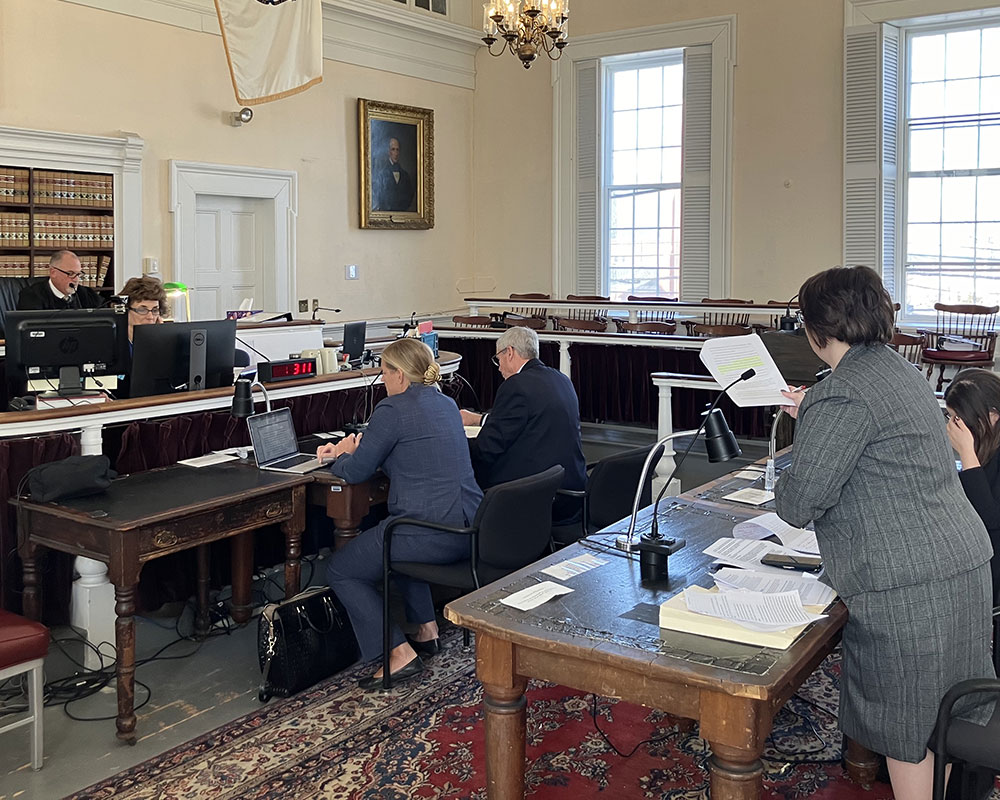At an Essex County Superior Court hearing yesterday, Judge Jeffrey T. Karp said he was leaning toward rejecting Stem Haverhill’s claim that a 2022 change to state cannabis law should apply retroactively to the business’s 2018 agreement with the city.
To operate in Massachusetts, recreational cannabis retailers must first create agreements with their host communities. Part of Stem’s agreement with Haverhill included certain fees to offset costs the city alleges are caused by the business’s existence. Those charges, totaling $887,488 over the past three years according to a July 2023 Stem press release, are the subject of a civil suit the shop filed in 2021.
Stem owner Caroline Pineau told WHAV, “While our overriding hope was that Haverhill officials would follow the actions taken now by so many other municipalities, who have recognized that, indeed, legal cannabis presents no negative impacts, and have returned impact fee payments collected without evidence or justification, sadly, Haverhill did not do this, and the case is moving forward in court.”
Before hearing the trial, Karp asked both sides to help resolve five basic questions of law. The most pressing is whether the 2022 cannabis reform law supersedes the original law governing host community agreements.
“All is not lost to the plaintiff (Stem), I don’t believe, if the ruling is that the legislation is not retroactive,” Karp said. “Basically, the case is just back to where Judge [James F.] Lang had it.”
Though Superior Court Judge Lang ruled in favor of Haverhill in November 2022, Karp pointed yesterday to Lang calling the city’s justification for the impact costs “somewhat anemic.”
With the original trial date canceled at a Sept. 20, 2023 hearing, the two parties met in court yesterday to address Karp’s questions instead. After clearing up dates, numbers and logistics, he turned to Stem attorney Thomas K. MacMillan first, saying he was “skeptical” of the plaintiff’s claims that the 2022 bill is relevant.
Karp said, “Presumably, if the legislature wanted the legislation to be retroactive, the legislature would have said that. With all due respect, I’m going to need some convincing on the plaintiff’s side that the legislature has said that because that’s really what your argument is.”
For the rest of the hearing, the opposing lawyers attempted to reveal that the legislature’s intentions were in their favor.
Among other strategies, MacMillan pointed to a sentence in the law he argued showed the legislature intended the bill to apply to existing agreements, while outside city lawyer Michelle E. Randazzo claimed the larger context of the paragraph refuted that interpretation.
He also argued that the Cannabis Control Commission’s regulations revealed the intentions of the legislature to apply the new law retroactively. Karp called this logic “putting the cart before the horse.” He said the commission’s decisions could not have influenced the legislature because the body wrote the law before the committee could enact it.
Karp did not say when he will make his ruling. A new date for the trial has yet to be set. Issues to be decided include the city’s argument that it is simply enforcing a contract Stem signed or Stem’s contention the city failed to document it suffered expenses hosting the business.

